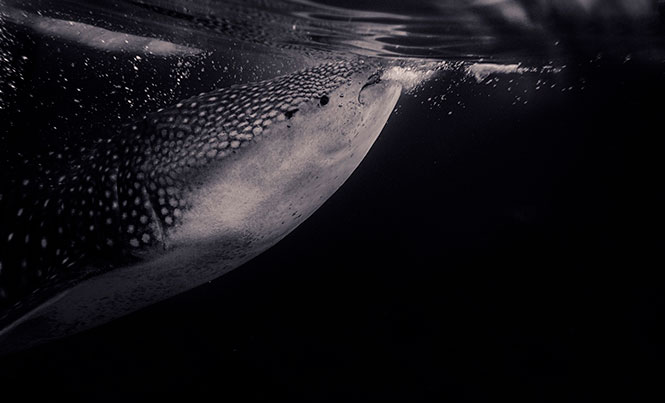
The whale shark is the largest fish in the world, yet it does not represent any danger to human beings; it is harmless to us. However, despite being small in comparison this immense creature, we can still cause it huge, irreparable damage.
Here is some advice to follow so that we can protect the whale shark and raise awareness of them:
- If you’ve already decided to experience swimming next to a whale shark, please check that the tour company you choose has trained and certified guides, with all their permissions in order. Check out our article on how to select a responsible tour company on page 22.
- The tour boat should not go fast. Whale sharks and their calves are often hit, scraped and even mutilated by boats that are not carefully driven.
- There should be no more than 10 people aboard each boat and there should be no more than 5 boats around the whale shark. A distance of 100 meters must be kept between boats (by law). Although it is very common to observe up to 20 boats suffocating these helpless animals, please do not stay silent. Complain to the authorities or to the organizations that protect these animals.
- Do not touch the whale shark for any reason and only two people per boat can take turns to swim at a distance of three to five meters from the whale shark.
- Do not litter or use water-polluting chemicals. The destruction of natural habitats and the deforestation of mangroves are also destroying the food sources of this animal (plankton, algae and coral). It is also proven that as tourism increases, the whale shark stops eating and changes direction and it is more difficult to detect its location.
The main threat to the whale shark is unregulated tourism. Don’t be part of this threat; even better, be part of the solution! Spread the word about how we can and must protect this unique and incredible species. Let’s not become predators of the world’s largest fish, but become their biggest protectors!